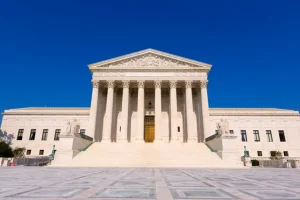Could New FCC Initiatives Be Responsible for Unsuccessful SMS Campaigns?
After a new SMS campaign is crafted by your marketing team and vetted by the legal department for TCPA and TSR compliance, you are surprised to see issues with deliverability and find the campaign was not as successful as anticipated.
Why aren’t your texts being delivered?
Marketing issues could be related to new FCC initiatives that encourage carriers to block unwanted and illegal call and text activities, citing concerns about fraud and identity theft. Last year, the FCC created a Safe Harbor for carriers who block unwanted and illegal calls to their customers, given there’s an opportunity to opt-out of this service. This blocking must rely on reasonable analytics, which could include large bursts of calls in a short timeframe, low call completion ratios, neighborhood spoofing, and consumer complaints.
The FCC noted in their July 16, 2020 order that terminating service providers may block legal calls if the calls fit within their blocking parameters. Service providers are not required to restrict call blocking to illegal practices. Several carriers have outlined “disallowed content” in their codes of conduct and will prevent any text messages from these categories from being sent over their network.
Common areas of “disallowed content” include, but are not limited to, debt collection, cannabis, job alerts from recruiting firms, and work from home programs. Carriers will analyze SMS messages prior to delivery and potentially block the text if it contains keywords associated with the banned categories.
Additionally, the FCC, FTC, and CTIA recommend consumers use third-party apps to help curb unwanted calls. When apps such as NoMoRobo and YouMail are downloaded to consumer phones, they can pre-screen calls or texts to the consumer. While your text content may not violate the carrier code of conduct, messages could still face delivery issues if these third-party apps associate your company’s caller IDs with spam.
What can you do to prevent your texts from being blocked?
- Contact the carriers that may be restricting your industry. Most carriers have an exception process where companies sending text messages that may fall into the “disallowed content” categories can apply for an exception to text blocking.
- Reach out to your provider. In issuing Safe Harbor for Call Blocking based on reasonable analytics, the FCC noted that voice service providers must have a point of contact for call blocking disputes. Service providers must investigate the dispute at no cost to the caller and within a reasonable time period.
- Reach out to call blocking apps. Apps like NoMoRobo and YouMail may also be contacted to dispute call blocking.
- Document compliance. Make sure any call campaign is vetted to ensure compliance with marketing regulations like the TCPA and TSR. Some legal and legitimate calls may be blocked based on reasonable analytics, for instance, the use of local caller ID or large call volumes. Being able to show a well-documented compliance program may go a long way in resolving disputes with carriers or private blocking apps.
To ensure marketing campaigns reach their full potential, it is essential to monitor whether text messages are being blocked before even reaching the consumer. Monitoring of delivery rates and caller IDs can be crucial to solving this problem, as well as whitelisting caller ID numbers with carriers and call blocking apps.
Please reach out to us at connect@compliancepoint.com if you have any questions about this topic or how CompliancePoint can assist your organization with managing your marketing compliance.
Finding a credible expert with the appropriate background, expertise, and credentials can be difficult. CompliancePoint is here to help.





